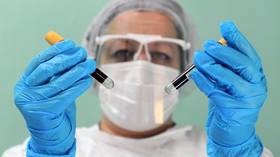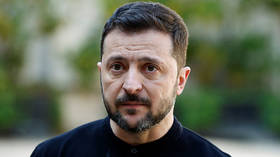Russian health watchdog says coronavirus mutations appearing in icy Siberia, raising fears for vaccine effectiveness

The head of Russia’s health and safety watchdog said on Tuesday that a mutated version of the coronavirus strain that causes Covid-19 has been discovered in the east of the country.
Dr Anna Popova of Rospotrebnadzor told reporters that scientists had detected differences in the virus isolated from infected people in the Siberian Federal District. “We see changes in proteins,” she said, “which allow us to assume that this region is forming its own variant with specific mutations.” The new strain has been termed ‘coronavirus-IF’.
She went on to suggest that much of the transmission of Covid-19 in Russia had come via European countries, rather than directly from China, where the pandemic is believed to have originated. “Analysis of the genomes of coronavirus from other countries suggests that the virus we saw in the spring came from Western Europe … that is to say, the strains that would have been brought over from China at the start of the year haven’t been circulating in Russia.”
Also on rt.com Russian arts sector warns of financial trouble as world-famous Bolshoi Theatre reports record losses during coronavirus pandemicIn September, the scientific journal Nature documented how new mutations were slowly accumulating in the genetic makeup of the virus. However, the authors argued, most of these random mutations either have no effect, or actually make the virus less effective at infecting people. “It’s much easier to break something than it is to fix it,” said Emma Hodcroft, a scientist at the University of Basel in Switzerland. However, there is always a risk that a mutation could override the body’s ability to remain immune to the virus, or undo efforts to develop a vaccine.
In August, it was reported that the governor of the remote Russian Tyva Republic, in Eastern Siberia, had become Russia’s first documented case of a possible reinfection with the virus. Three months after first being admitted to hospital with pneumonia caused by coronavirus, Sholban Kara-Ool, 54, again tested positive. Although his symptoms were less severe the second time around, limited mainly to a severe headache, he was again hospitalized as a precaution.
“I almost believed that you couldn’t get sick with it twice,” Kara-Ool said. “Maybe that’s the reason I got sick.”
If you like this story, share it with a friend!















